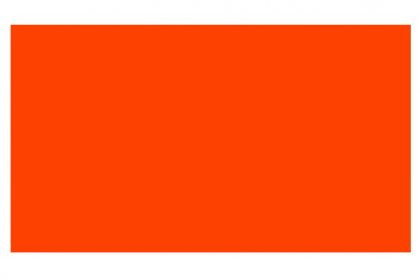The years-long legal dispute over the cancellation application against the German colour mark ‘lawyer’s NJW-Orange’, used in the best-known professional German journal for lawyers, has now been decided before the BGH. This is particularly noteworthy because it is a reversal by the BGH from its previous case law on the burden of proof.

The colour mark ‘Orange’ is used for the German “Neue Juristische Wochenschrift”, the best-known professional journal for lawyers in Germany, and has been protected as German trade mark since 2009. In October 2015, an application for cancellation of this colour mark was filed, essentially on the grounds of lack of distinctiveness, but to no avail.
The cancellation request against the ‘Orange’ had failed both at the German Patent and Trade Mark Office (DPMA) and before the Federal Patent Court (BPatG). In 2020, the BPatG – the court of last instance – ruled that it could be assumed that the colour orange of the disputed colour mark had become established in the relevant legal trade circles as a result of its constant representation for ‘legal journals’ – even if this could not be proven beyond doubt.
According to the BPatG, it was not possible to establish that the use of the abstract colour as an indication of origin in the field of legal journals had become established in the trade pursuant to § 8 (3) Trade Mark Law. Nor was any reference made between the respective colour and the publishing house Beck Verlag, for example in the sense of a classic corporate colour.
Nearly everyone knows the ‘lawyer’s NJW-Orange’
However, since the “Neue Juristische Wochenschrift” has been the leading professional journal in Germany for many years, no lawyer can avoid it, the BPatG had found. Therefore, the BPatG considered that the colour ‘orange’ registered as a trade mark for the goods ‘legal journals’ was likely to be asserted in the relevant public and referred to the documents submitted and the circumstances known to the court – meaning the depiction of the disputed colour mark in the court’s journals and also its presence in advertising.
However, it was not possible to establish distinctiveness beyond doubt, the BPatG finally ruled, and also referred to the unresolved legal question of the burden of proof. In other words, were the doubts about the proof of acceptance in the relevant public to the detriment of the applicant for cancellation?
Burden of proof of trade acceptance
This has now been decided by the Federal Supreme Court (BGH) (I ZB 16/20). In contrast to former case law, the BGH saw the burden of proof with regard to acceptance by the public on the publishing house Beck Verlag, which is the trade mark proprietor of the disputed colour mark ‘lawyer’s NJW-Orange’. The publisher would now have to provide additional evidence of acceptance by the public and, if necessary, also submit further evidence, in particular a demoscopic expert opinion. Alternatively, the Beck-Verlag publishing house can also request a court expert opinion in order to prove beyond doubt that NJW-Orange has become established in the market.
This BGH decision is remarkable above all because it is a complete reversal of its previous case law. The BGH thus explicitly takes up European case law. The ECJ has already ruled several times – most recently in the highly regarded Ferrari [testarossa] judgment of 2020 (C:2020:854) – that the trade mark proprietor of an EU trade mark bears the burden of proving that the trade mark has been “put to genuine use” within the meaning of this provision or that he must prove those circumstances from which the (continued) existence of his trade mark results. In its Ferrari judgment of 2020, the ECJ also emphasised that the question of the burden of proof of genuine use in proceedings concerning the cancellation of a trade mark does not fall within the competence of the member states.
Now the BGH has implemented this requirement and has abandoned its previous case law in favour of EU law: From now on, the burden of proof for the justification of the continued existence of a trade mark lies with the trade mark proprietor in Germany as well.
Do you need protection oder defence in trade mark law?
Our attorneys have many years of expertise in trade mark law as well as in the entire field of intellectual property and are authorised to represent you before any court – in Germany and also internationally.
Please feel free to contact us if you are interested.
Sources for text and image:
BGH judgement ”lawyer’s NJW-Orange”, I ZB 16/20








Leave a Reply